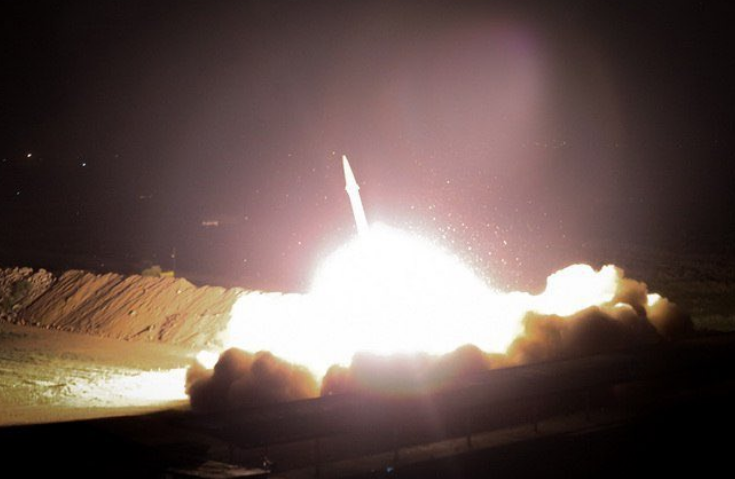U.S. on high alert as Iran’s proxies threaten retaliation following Israeli strikes
Washington is closely monitoring the potential for coordinated attacks on Israel by Iran’s proxies from Yemen, Iraq and Lebanon, a U.S. official informed Middle East Eye (MEE). It is also analyzing signals intelligence and conducting cryptographic analysis to understand the organization and intentions of these groups.
“Iran’s proxies are expected to play a more significant role in retaliation than in April’s attack,” the official told MEE. “We could face a more unpredictable situation with secondary impacts for U.S. allies.”
Recent Israeli actions have intensified the situation. On July 30, Israel assassinated senior Hezbollah commander Fuad Shukr in Beirut and reportedly killed Hamas leader Ismail Haniyeh in Tehran at a location controlled by Iran’s Islamic Revolutionary Guard Corps (IRGC).
These strikes have embarrassed Iran and its regional allies. Hezbollah leader Hassan Nasrallah warned of inevitable retaliation, stating: “You do not know what red lines you crossed.”
The Biden administration is drawing lessons from the April crisis, when Israel’s bombing of Iran’s consulate in Damascus prompted a near-conflict situation.
The U.S., in collaboration with Jordan and the U.K., intercepted nearly all of the 300 missiles and drones Iran launched at Israel. This led to a limited Israeli response – a small drone strike on Isfahan.
“There was a sense of humiliation in Iran because the U.S. successfully thwarted the attack,” Merissa Khurma, director of the Middle East program at the Wilson Center, told MEE. “There is now a focus on serious diplomacy to prevent a regional war.”
Iran had warned the U.S.’s Gulf partners about a potential attack on Israel, aiding preparation efforts. (Related: Iranian analyst warns of harsher response to Haniyeh’s killing than previous strike on Israel.)
However, Tehran’s response might have been undercooked. Nasrallah emphasized the need for a substantial response, not merely symbolic. “We are looking for a real response, not a performative response,” he said.
The U.S.’s Arab Gulf allies were reluctant to actively participate in Israel’s defense in April. The U.S. had to deploy fighter jets from Qatar and Saudi Arabia to intercept Iranian missiles and drones.
If Yemen’s Houthis are involved in retaliation, it could further destabilize Saudi Arabia. The Houthis’ drone strike on Israel in July led to an Israeli response and a subsequent easing of financial restrictions by Yemen’s Saudi-backed government.
U.S. Secretary of State Antony Blinken is working with Saudi, Omani and Qatari officials to prevent escalation and seek a permanent ceasefire in Gaza.
A broader Iranian response might also engage the Popular Mobilization Forces, which were largely inactive during April’s tensions but had previously attacked a U.S. base in Jordan, almost leading to a direct U.S.-Iran conflict.
Iran’s supreme leader reportedly ordered a direct attack on Israel
The New York Times reported that Iran’s Supreme Leader Ayatollah Ali Khamenei has ordered a direct attack on Israel. Analysts and U.S. officials are concerned about the extent of Iran’s direct involvement versus proxy actions.
“If Iran strikes Israel directly, Israel would likely respond on Iranian soil. Iran wants its proxies to bear the cost this time, which would be more acceptable to both Israel and the U.S.,” IRGC expert Ali Alfoneh told MEE.
The U.S., a close ally of Israel, continues to provide intelligence and arms to support Israel’s military efforts while also attempting to mediate a ceasefire. Nevertheless, Blinken distanced Washington. from the Haniyeh strike, saying: “This is something we were not aware of or involved in.”
Recent Israeli strikes in Beirut and Tehran have strained perceptions of U.S. control over Israeli actions, complicating diplomatic efforts. Israeli attacks have even surprised Lebanese officials, with Lebanese Foreign Minister Abdallah Bou Habib commenting: “We were not expecting them to hit Beirut and they did.”
Follow WWIII.news for more similar stories.
Watch this video discussing how Iran is poised to strike Israel.
This video is from The Appearance channel on Brighteon.com.
More related stories:
Ismail Haniyeh killing: Eight other times Israel was accused of assassinations in Iran.
Another world war unfolding after Israel “assassinates” Hamas chief in airstrike: “We have a duty to avenge him,” vows Iran.
Iranian lawmaker claims Tehran already possesses nuclear bombs.
Sources include:
MiddleEastEye.net
Brighteon.com
Read full article here


